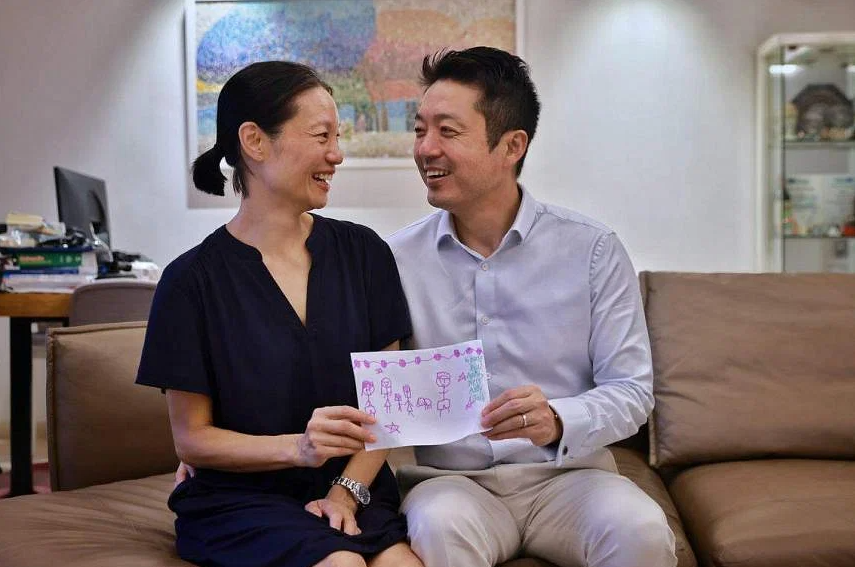Home > News & Media > More volunteers needed to support foster children through befriending, tutoring
More volunteers needed to support foster children through befriending, tutoring
Last Update on May 5, 2023

This article was originally published by The Straits Times on 30 April, 2023.
SINGAPORE – Hoping to become foster parents one day, Mr Nasrum Seron, 27, and Ms Yuli Ardini Affandi, 27, have been helping out at fostering agencies here to get a feel of the commitment needed for the role.
As volunteers with PPIS Oasis, one of five government-appointed fostering agencies, they spread the word at roadshows, help with childminding when foster parents are busy, and befriend foster children as positive adult role models.
“Understanding what the foster kids have gone through, you just want to provide what they cannot have with whatever little you have. For me, I can provide them with time and show them there are people out there who care,” said Mr Nasrum, a research officer.
While foster parents have made headlines over the years, the work of volunteers is no less significant.
This can take the form of regular befriending sessions, free academic tutoring, or ferrying the children between appointments when their foster parents are unavailable to do so. Some volunteers provide respite care to families needing short-term emergency help.
Ground-up initiatives like 100 Homes and Home for Good SG have also helped generate awareness and support for the fostering scene here.
Organisations told The Straits Times they are always looking for more volunteers.
They make a difference by helping the children feel that adults are safe and restoring their faith in adults, said PPIS Oasis centre manager Noor Aaqilah Abdul Latiff.
PPIS Oasis has 55 volunteers, with 22 recruited in 2022.
Mr Tony Moochala, 34, who is among three volunteer tutors with fostering agency Boys’ Town, signed up in 2021.
“It is a less demanding role compared with caring for a child as a foster family, which would require full-time commitment and a lot more effort,” he said.
Mr Moochala, who tutors the children, said the best moments are when he sees them gain confidence and knowledge in the subjects they are struggling in.
Ms Vanessa Ping, 46, and her husband Paul Pak, 47, who help with respite care at Sanctuary Care, have cared for three children for about three months each time since 2020.
Sanctuary Care is a community respite care service run by Boys’ Town.
“We’ve been greatly blessed and we wanted to help other people. It’s also important for our children to see love in action, and hopefully they will in turn help others,” said Ms Ping. She and her husband have two children, aged 11 and 17.
To those thinking of helping out, Mr Pak said: “Don’t be half-hearted with a fear of getting attached. When we’ve gone in in full, it’s not just the child who benefits but our family too.”
A spokesman for Sanctuary Care said it had 47 respite carers in 2022, up from 23 in 2019. Most are married couples or single women, aged 30 to 55, with some being expatriate families who have lived in Singapore for some time.
All undergo a stringent assessment including home-based checks, screening and medical checks by social workers.
“While our number of respite carers has grown over the years, some have dropped out of the programme as well. Hence, there is a need to actively recruit such volunteers,” the spokesman said.
Common reasons for respite care being needed include medical emergencies, caregiver stress, sudden loss of one’s spouse, work-related matters and loss of housing, he said.
Sanctuary Care’s services provide short-term care, while the Government’s fostering scheme provides longer-term care for children in need, added the spokesman.
The average length of its respite care cases is two to three months each.
Home for Good was set up in 2013 as a support group for foster families.
This was because a common response they got from those unwilling to foster was that it was “too scary”, said Ms Vivienne Ng, one of the founders.
Realising that the best recruiters of foster parents were other foster parents, they began to host tea sessions in their homes, inviting friends, families or church members to share more about fostering.
There is now a WhatsApp chat group with over 200 people, including some who are interested in fostering, some who are foster parents, as well as those who help with transport or befriending.
Apart from sharing tips and information, the chat is a safe space for foster parents to “vent” if they need to, said Ms Ng.
Since 2013, over 150 children have been fostered within Home for Good, which attained charity status in February 2023.
Ms Ng said the group is looking into strengthening post-care support after a foster child has returned to his birth parents.
This way, the child will have continued support while the birth parents have an extra person to lean on.
Mr Norman Ng, one of the founders of 100 Homes, said it raises awareness by sharing its stories with different churches, followed by conducting information-sharing sessions to bring together those who are interested.
His wife Debbie Ng, also a co-founder, said their interactions with people and churches made them realise there is room for more awareness of the fostering cause.
“We hope to be the ones standing in the gap to draw attention to these children and provide a loving home for them,” she said, likening their organisation to a bridge between churches and the various fostering agencies.
Mr Ng, a senior pastor, added: “With Singapore being a First World nation, sometimes those on the fringes, like children in need, are invisible to society and the church. There is a lot of awareness work to be done.”
Those keen to volunteer with fostering agencies can visit the Ministry of Social and Family Development’s website at https://str.sg/ioMf

